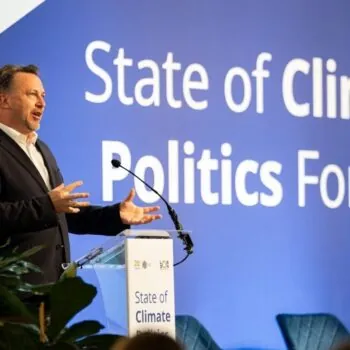The backdrop to the Bonn climate talks made a difference. It’s pretty rare that announcements from outside the negotiations make an impact on the mood inside, but the buoyancy of the Green Climate Fund outcome the week before, the EPA announcement on coal and the insights into the range of options being considered in China all set the scene for a more productive session, despite the poor Ministerial turnout.
What was evident is that many countries are starting to reframe the 2015 agreement, focusing less on policy prescriptions, but on its functions. Take for instance the emphasis on adaptation. For years, this issue has been relegated as a marginal issue, resulting in a somewhat trivial policy discussion. And this is still the case in some quarters, with many of the major economies still towing the ‘current efforts are enough’ line on this critical element of the deal. But this session, the most vulnerable countries such as the Seychelles, Colombia and Bangladesh began to express how they are conceptualising adaptation to better understand what the 2015 agreement needs to do to manage the risks to governance, prosperity and our planet posed by climate change. This is a much richer discussion that starts from the premise of ‘what would we do differently in 2015 if we took climate risk as seriously as we take nuclear deterrence’ – something their larger counterparts to take more seriously.
The second and most surprising feature of the Bonn session was the quantity of countries that came forward to vocalise their interpretation of net-zero by 2050. The Marshall Islands, Grenada, Norway, France, Germany as well as regional groupings such as the Least Developed Countries and AILAC all spoke up for a long term measurable goal. This policy solution is what could mark 2015 out as the ‘beginning of the end’ for the fossil fuel industry. It sends such a clear signal of political intent that decarbonisation is inevitable, that the Executive Committee’s of major multinational companies and state owned industry would need to take note and respond. And this is a core function of the agreement.
But the talks weren’t entirely without disruptions. The never-ending dilemma of how to develop the basis of a negotiation text reared its ugly head, and there was little time left to resolve this. The next session, in October will be an interesting litmus test. Coming off the back of the Climate Summit hosted by Ban Ki-moon in New York, and ever closer to when countries will need to prepare and submit their contributions (in Quarter 1 – 2015), we are likely to perceive a more intense and heightened atmosphere in the negotiations. October will be the last moment for countries to agree what constitutes those contributions and how that relates to the development of the broader outcome overall.



